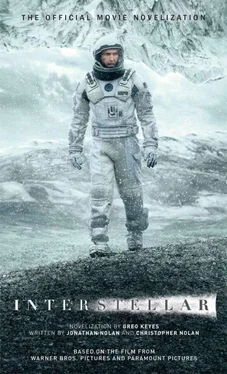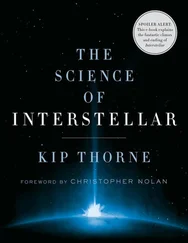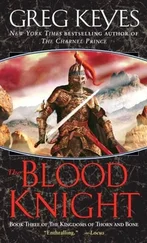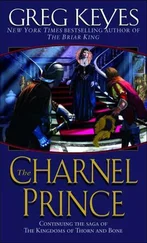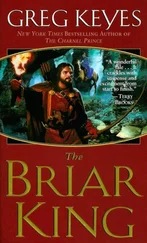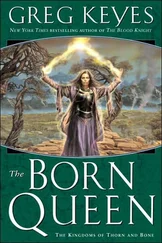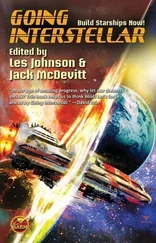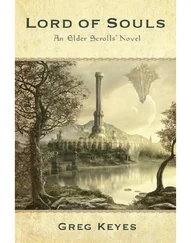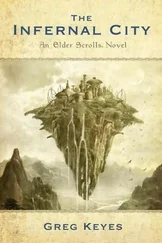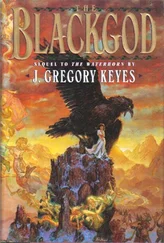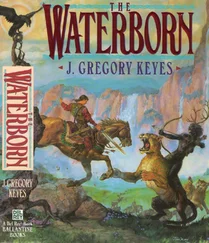Until one day it lost its fight with the gravity it had itself created. The force keeping it shining and inflated wasn’t enough to counter its mass. So it collapsed, victorious gravity crushing its atoms into denser and denser substances until finally crushing the atoms themselves in neutrons. The physical size of the star became less and less, but its gravity grew exponentially. In the end, even light couldn’t escape its pull, but it could still grow, swallowing nebulae, planets, stars.
Yet Gargantua was anything but “average.” Formed when the universe was young, perhaps at the center of a galaxy, it may have been the product of many smaller black holes, merging until its mass was at least a hundred million times that of the Earth’s sun.
Present-day Gargantua was frightening in its seeming nothingness. Yet past its horizon, past the point of no return, beyond which even light could not come back, Amelia could see an effect—a glowing disk surrounded the black hole, gas and particles captured by the immense gravity, whirling around it like water going down a spherical drain. So incredibly fast was the spin that the atoms collided with one another, hurling bursts of energy into the cloud, quickening it with light and blowing like a wind back out through the disk, creating plasma arabesques of breathtaking beauty.
But deeper, where that eldritch, glowing shroud met the Gargantua’s event horizon… was a horrifying nothingness.
“A literal heart of darkness,” Doyle said.
That didn’t seem sufficient to Amelia—as if the man was damning Gargantua with faint praise. She pointed, drawing his gaze from the terrifying naught of the black hole to a small, glowing point.
“That’s Miller’s planet,” she said.
* * *
Cooper turned to CASE, the robot, who was riding shotgun in the copilot’s seat.
“Ready?” he asked.
“Yup,” the robot replied.
“Don’t say much, do you?” Cooper said wryly.
“TARS talks plenty for both of us,” CASE said.
Cooper chuckled, and threw a switch.
“Detach,” he said. Then he watched as the ring module seemed to drift away from them, and felt a moment’s hesitation.
Then Gargantua took hold of them, and they were suddenly streaking away from Endurance , ridiculously fast.
“Romilly, you reading these forces?” he asked, not quite believing what he was seeing.
“Unbelievable.” Romilly’s words crackled over the radio, but even from this distance, Cooper could hear the excitement in his voice. “If we could see the collapsed star inside, the singularity, we’d solve gravity.”
Cooper gazed down at the gaping black wound in the universe.
“No way to get anything from it?” he asked.
“Nothing escapes the horizon,” Romilly replied. “Not even light. The answer’s there, there’s just no way to see it.”
Cooper fastened his attention on the blue marble skimming along Gargantua’s event horizon, because it was coming up fast. He ran the trajectory one more time.
“This is fast for atmospheric entry,” CASE noticed. “Should we use the thrusters to slow?”
“We’re gonna use the Ranger’s aerodynamics to save fuel,” Cooper told the machine.
“Airbrake?” CASE said. Cooper noted for future reference that CASE apparently had an “are you kidding me?” setting.
“Wanna get in fast, don’t we?” he replied.
“Brand, Doyle, get ready,” CASE said. A robot couldn’t be nervous, Cooper knew, but somehow this one sounded anxious.
He watched the planet below. From a distance it hadn’t looked so different from Earth, but as they drew closer, he could see that it was much—well— bluer . He tried to pick out features—continents, islands—but all he could make out were clouds.
Then they reached the outskirts of the atmosphere and he didn’t have any attention to spare.
It started like a whisper, air so thin it would pass as vacuum compared to sea-level air on Earth. But at the speed they were traveling, those few molecules were compressed enough to make them practically much denser in their interaction with the plummeting vessel. That was good, actually, because this way they could ease into the atmosphere.
Well, maybe not ease , he thought, as the ship began to shudder and the air outside shrieked in protest. The Ranger’s nose began to glow as the friction from the atmosphere mounted, and every weld in the craft seemed to object as he tried to flatten out their course a bit, to engage the atmosphere like a jet, rather than a meteorite.
Cooper glanced at his instruments, and then back at the horizon.
“We could ease—” CASE began.
“Hands where I can see them, CASE!” Cooper shouted. “Only time I ever went down was a machine easing at the wrong moment.”
“A little caution,” CASE pleaded.
“Can get you killed, same as recklessness,” Cooper opined.
“Cooper!” Doyle chimed in. “Too damned fast!”
“I got this,” Cooper said, as the ship threatened to shake apart around them. His knuckles on the controls were white as he tried to keep them from vibrating out of his hands.
“Should I disable feedback?” CASE asked.
“No!” Cooper exploded. “No, I need to feel the air…”
The lander was white-hot now, cutting through a layer of clouds as thin as razors.
“Do we have a fix on the beacon?” he asked.
“Got it!” CASE said. “Can you maneuver?”
Yeah , he thought. We have our choice of crash sites, as long as most of them are more-or-less straight down.
“Gotta shave more speed,” he said instead. “I’ll try and spiral down to it.”
A moment later they burst through the clouds. The surface looked far too close to Cooper, but at least they seemed to be over a level surface…
“Just water,” Doyle said.
Cooper realized he was right. They were over an ocean.
“The stuff of life…” Brand said.
“Twelve hundred meters out,” CASE advised.
Cooper banked as hard as he could, trying to shed more speed. The surface was coming fast.
“It’s shallow,” Brand said. “Feet deep…”
Now they were low enough they were kicking up a splash, like an overgrown speedboat.
“Seven hundred meters,” CASE intoned.
Cooper watched the water sheeting toward him.
“Wait for it…” he said.
“Five hundred meters.”
Cooper yanked the stick back.
“Fire!” he said.
The retro-rockets kicked in just above the surface, punching back against their velocity. He tried to hold it, but the craft slewed sideways as the landing gear came down. They dropped, hit the water, casting up a spray. The impact nearly jarred Cooper’s teeth loose, but he held on stubbornly. Then when the air cleared, they were down, and everything looked good. Brand had been right—the water was really, really shallow—so much so that the landing gear held the Ranger just above the surface.
“Very graceful,” Brand managed. Cooper noticed she and Doyle were staring at him. Both of them looked a little roughed up.
“No,” he said. “But it was very efficient. ”
They still just stared, but he pretty much ignored it, wondering how much time had already passed on Earth.
Days?
Months?
Better not to think about it , he decided.
“What’re you waiting for?” he barked. “Go!”
They snapped out of it then, unfastening their harnesses, checking their helmets. CASE detached himself from the floor and went to the hatch. It cracked open, and light and spray blew into the cabin.
It caught Cooper, then, in his gut—they were on another world.
Читать дальше
